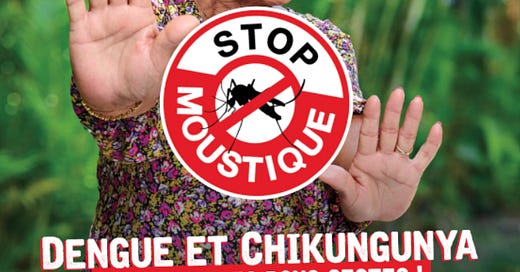According to the Agence Régionale de Santé (ARS) La Réunion, the circulation of chikungunya is intensifying in Reunion Island with 138 confirmed cases since August 2024.
The majority of cases are recorded in the south and west of the island, with a worrying geographical dispersion.
Officials say the pre-epidemic stage has been reached and an epidemic is likely in the coming weeks.
In addition, dengue fever continues to circulate quietly across the territory. Weather conditions are conducive to the spread of both arboviruses.
Gérard Cotellon, Director General of ARS La Réunion, in agreement with Patrice Latron, Prefect of La Réunion, has decided to activate level 2B of the ORSEC (“Organisation de la Réponse de Sécurité Civile" (Organization of Civil Security Response) system.
It is a national emergency response framework designed to organize and coordinate resources during crises, disasters, or emergencies.
The ARS acts as soon as a case of chikungunya is reported, without waiting for confirmation, to reduce the risk of circulation of the virus.
The vector control service has intervened in Saint-Gilles-Les-Bains, but also in Saint-Paul, Saint-Louis, Saint-Pierre and Sainte-Marie where suspected cases have been reported. The interventions are carried out in the residential area of the sick people and possibly around places regularly frequented (work, leisure, etc.).
As soon as a case is suspected, the ARS's intervention and vector control strategy applies to the affected neighborhoods and consists of:
eliminate mosquito nests (larval breeding sites) around the homes of patients,
carry out treatments (insecticides and/or larvicides),
raise awareness among residents about preventive measures,
distribute repellents to priority audiences,
search for suspected cases around a case's home,
encourage people to consult a doctor if they experience symptoms and to have laboratory tests carried out.





